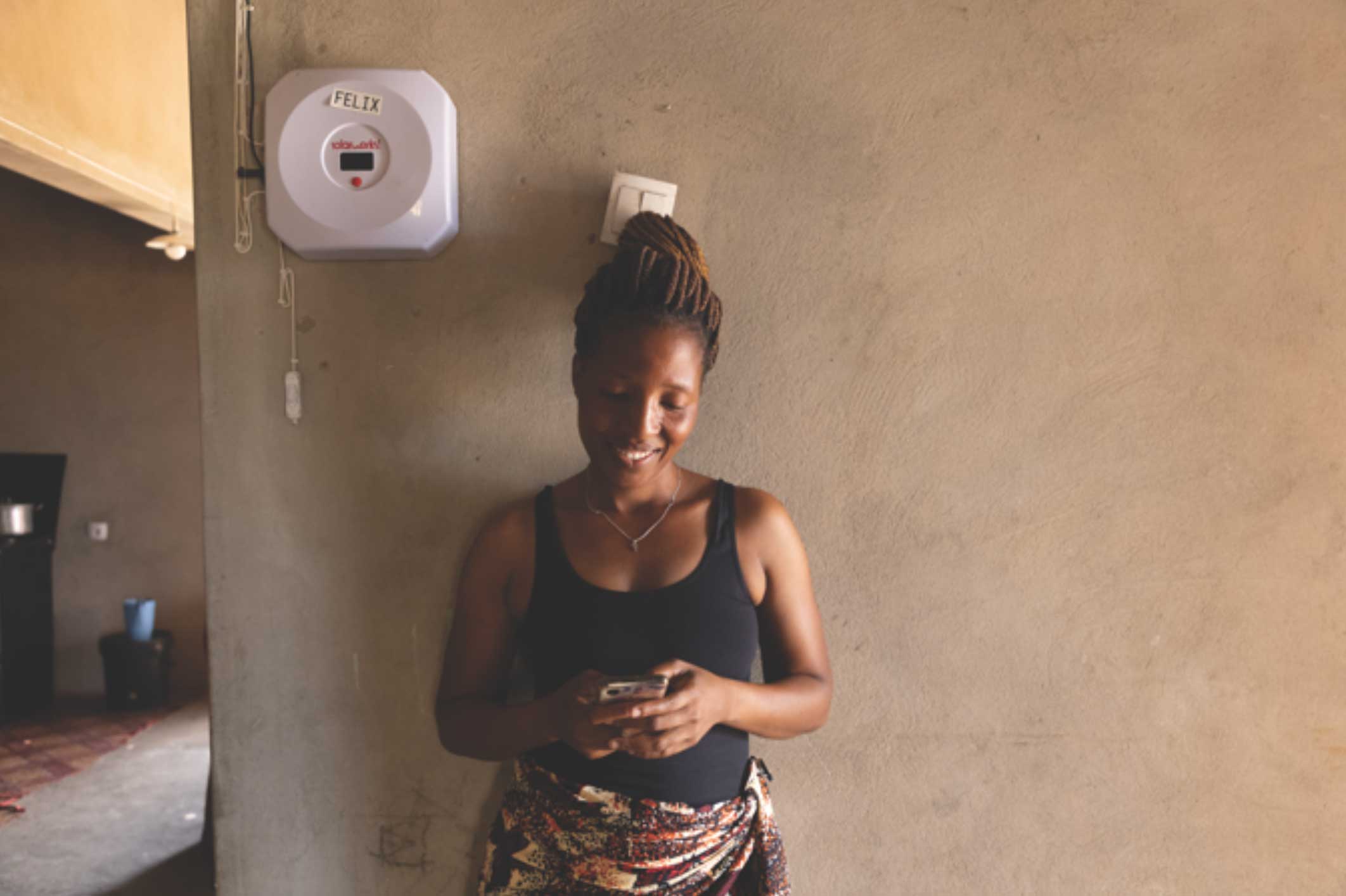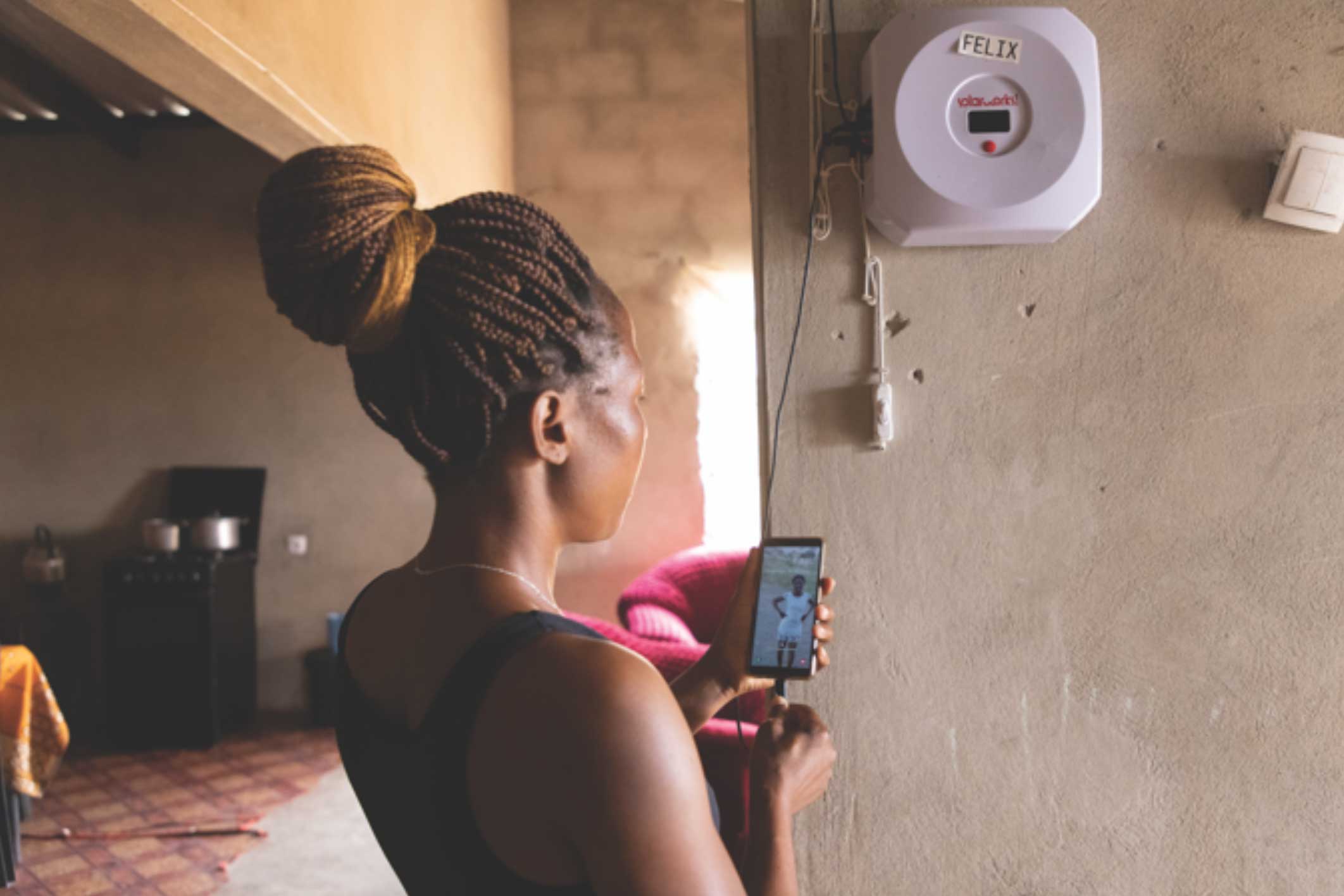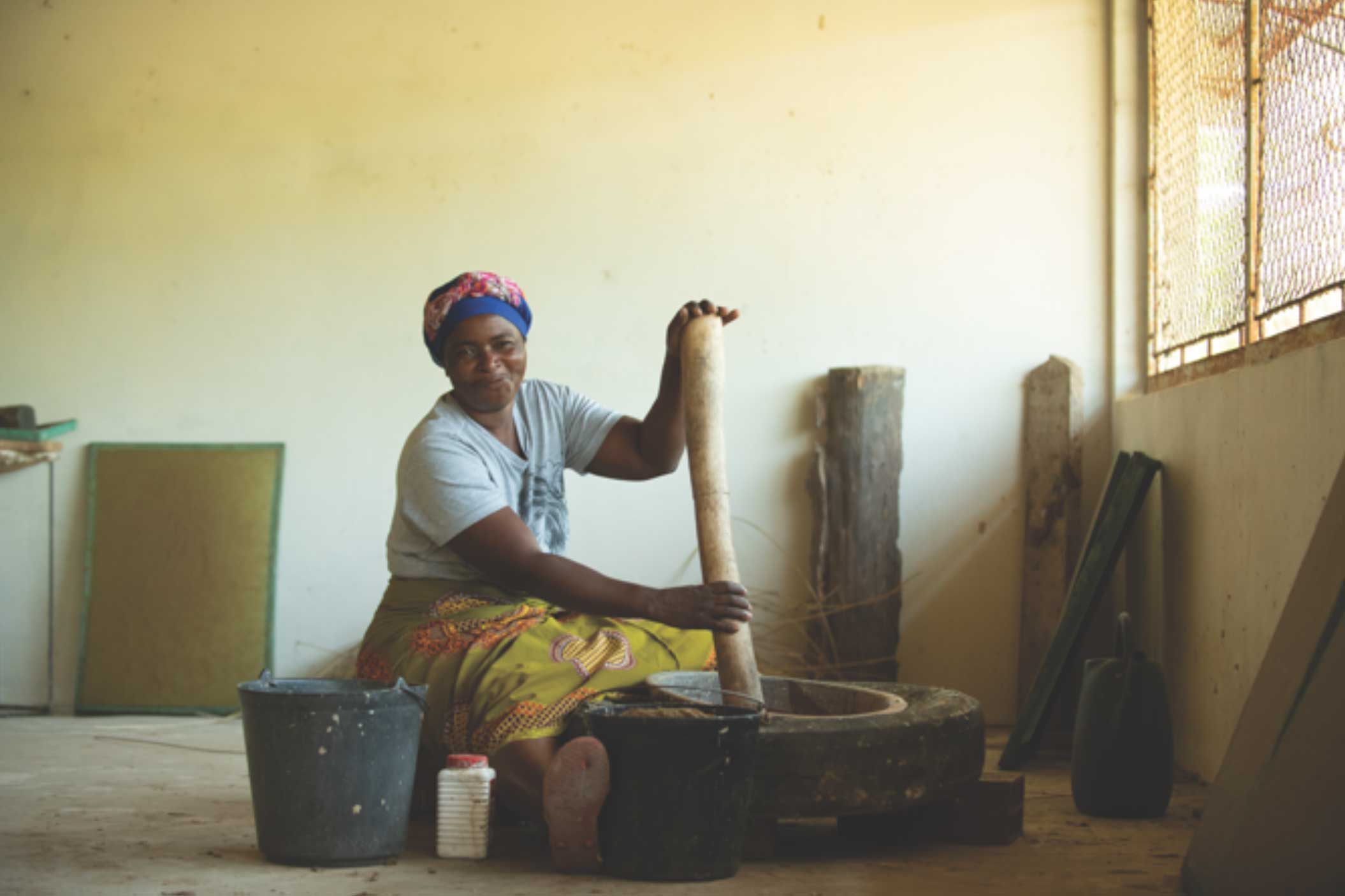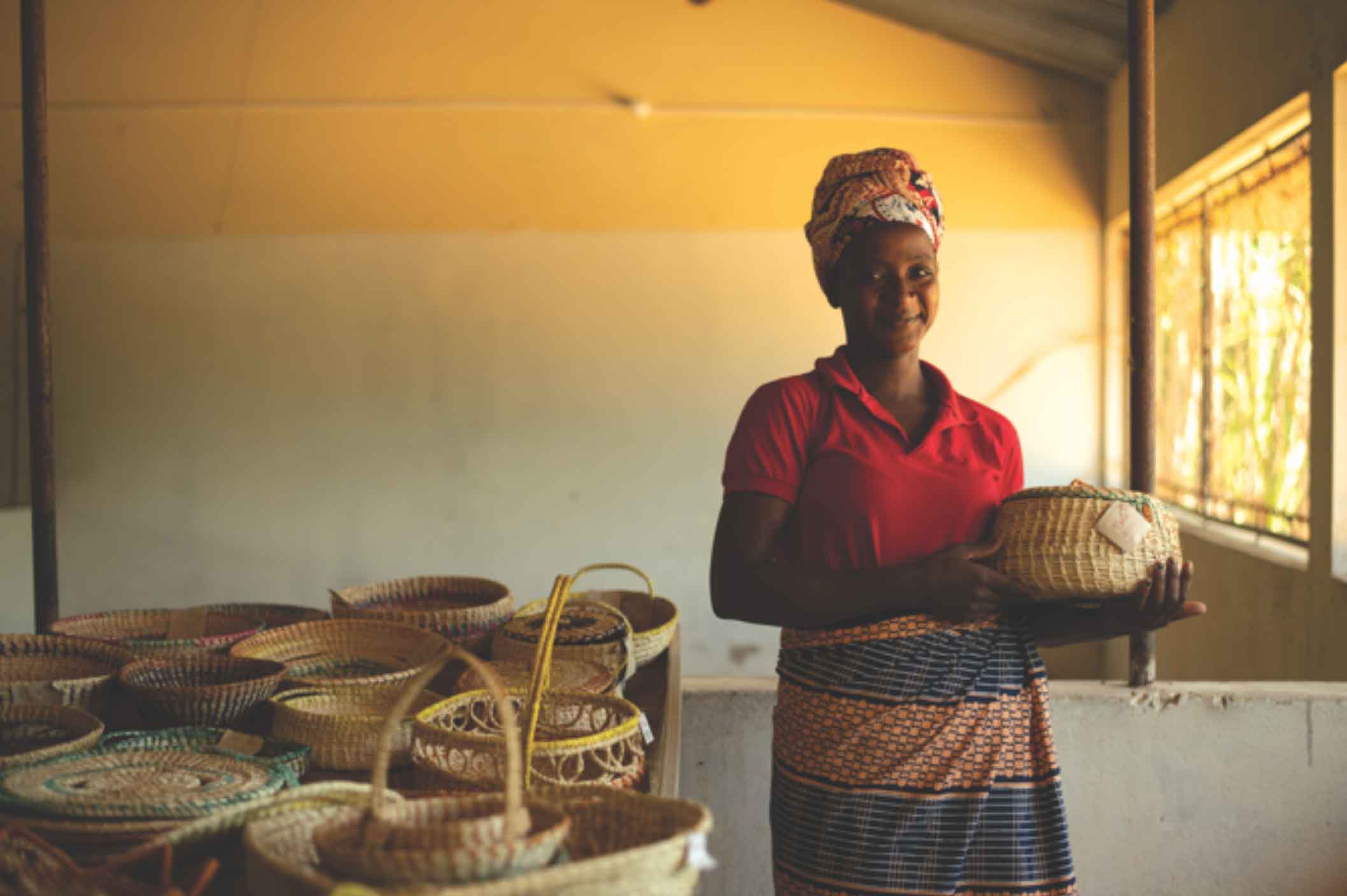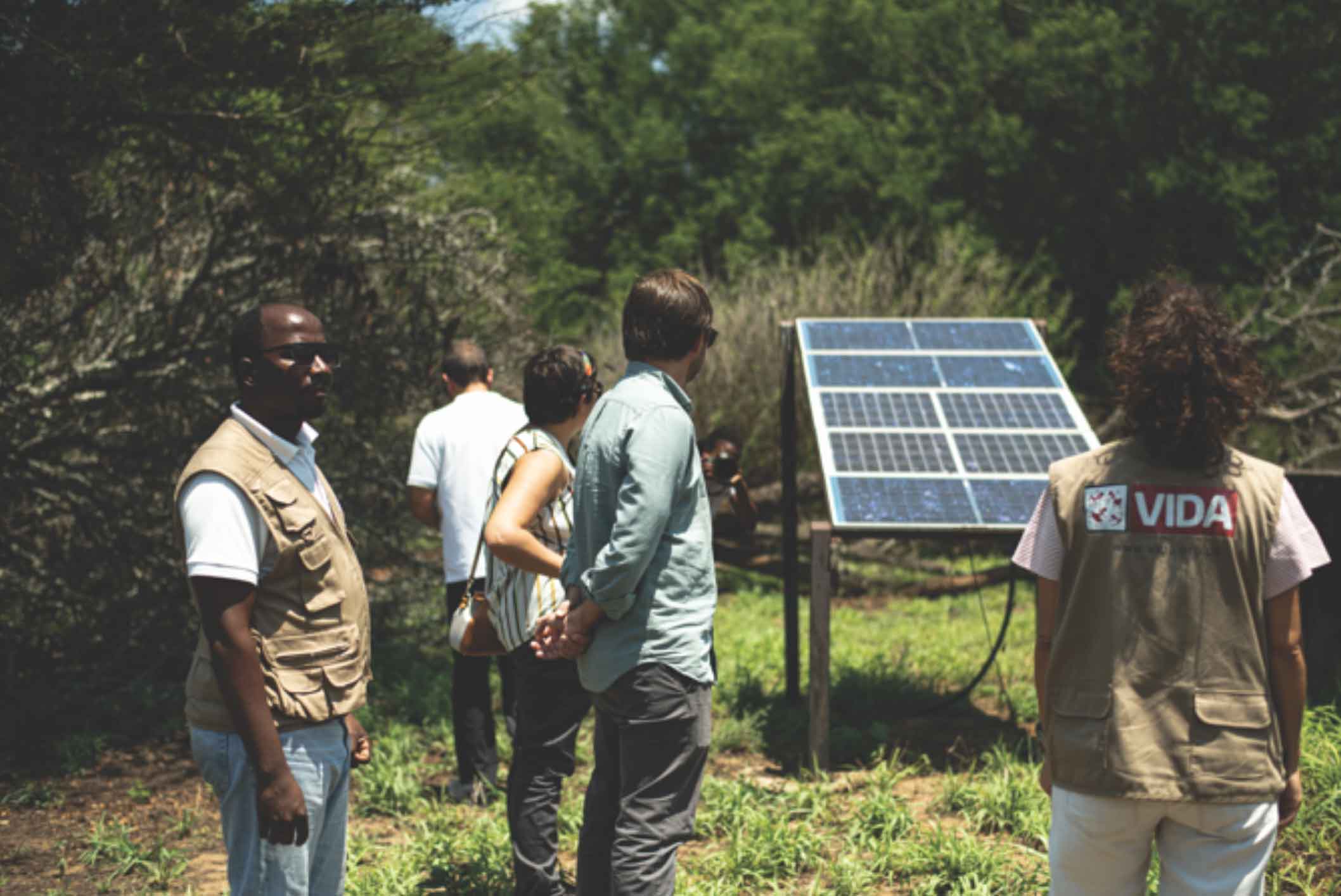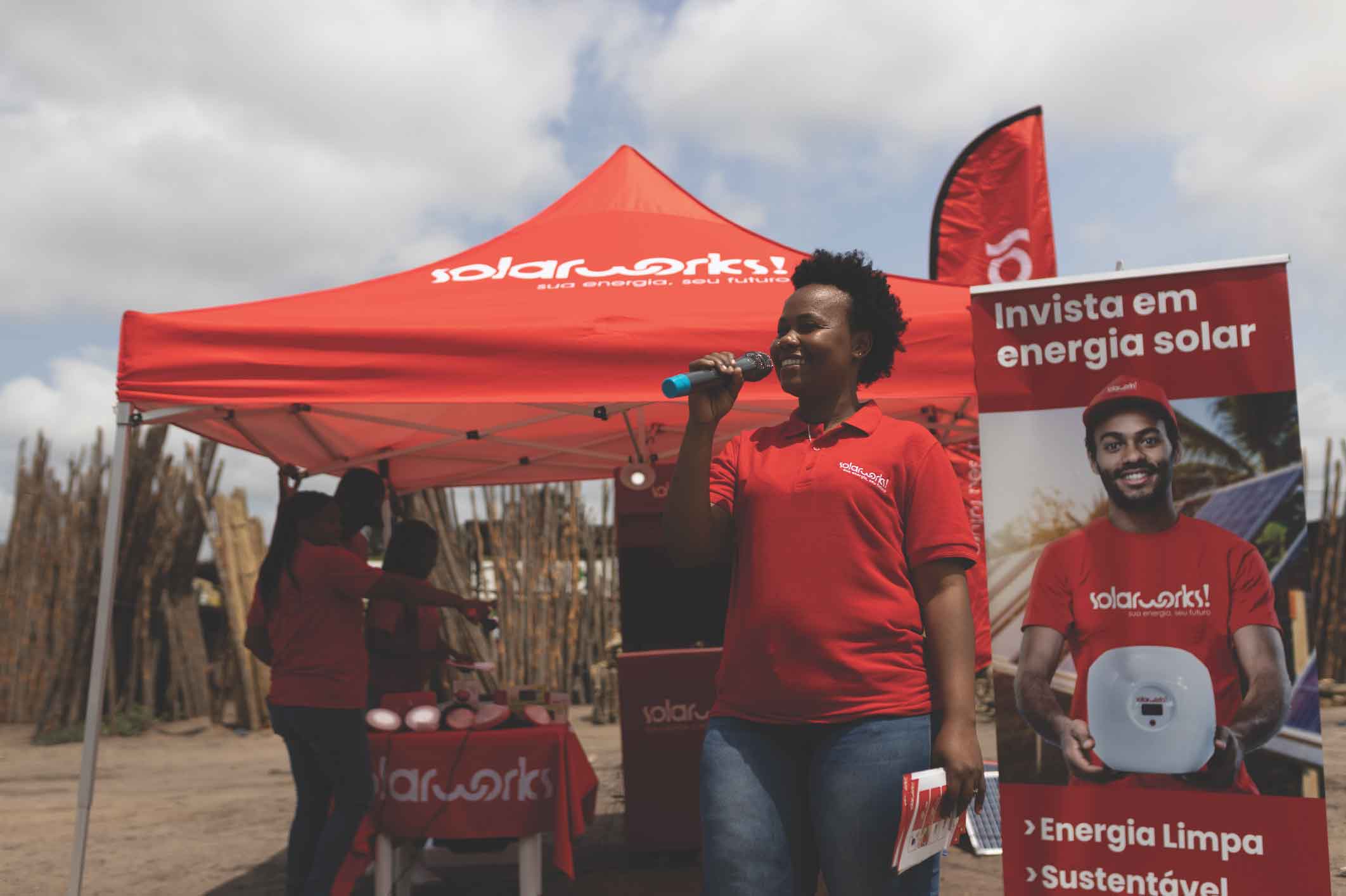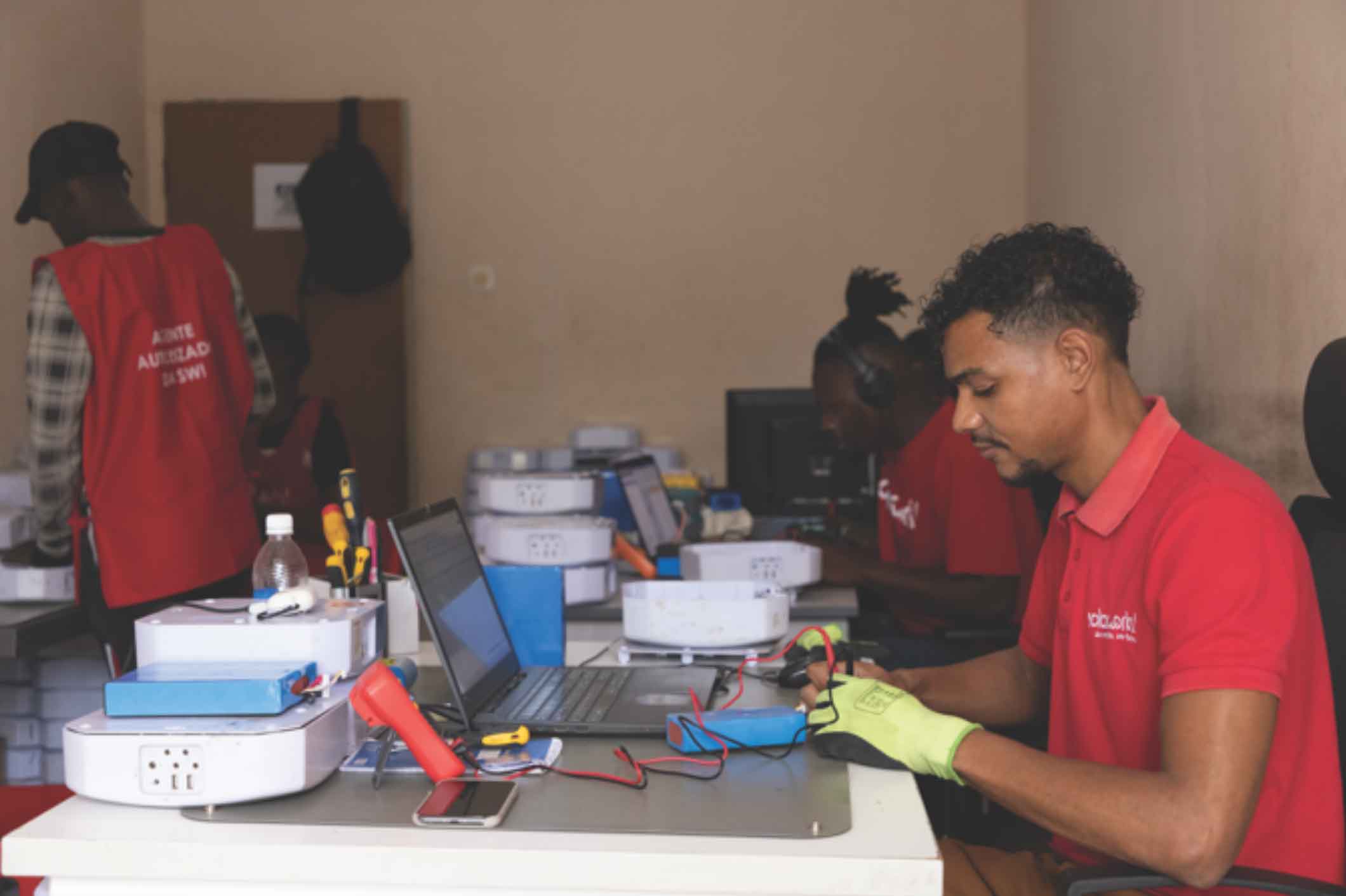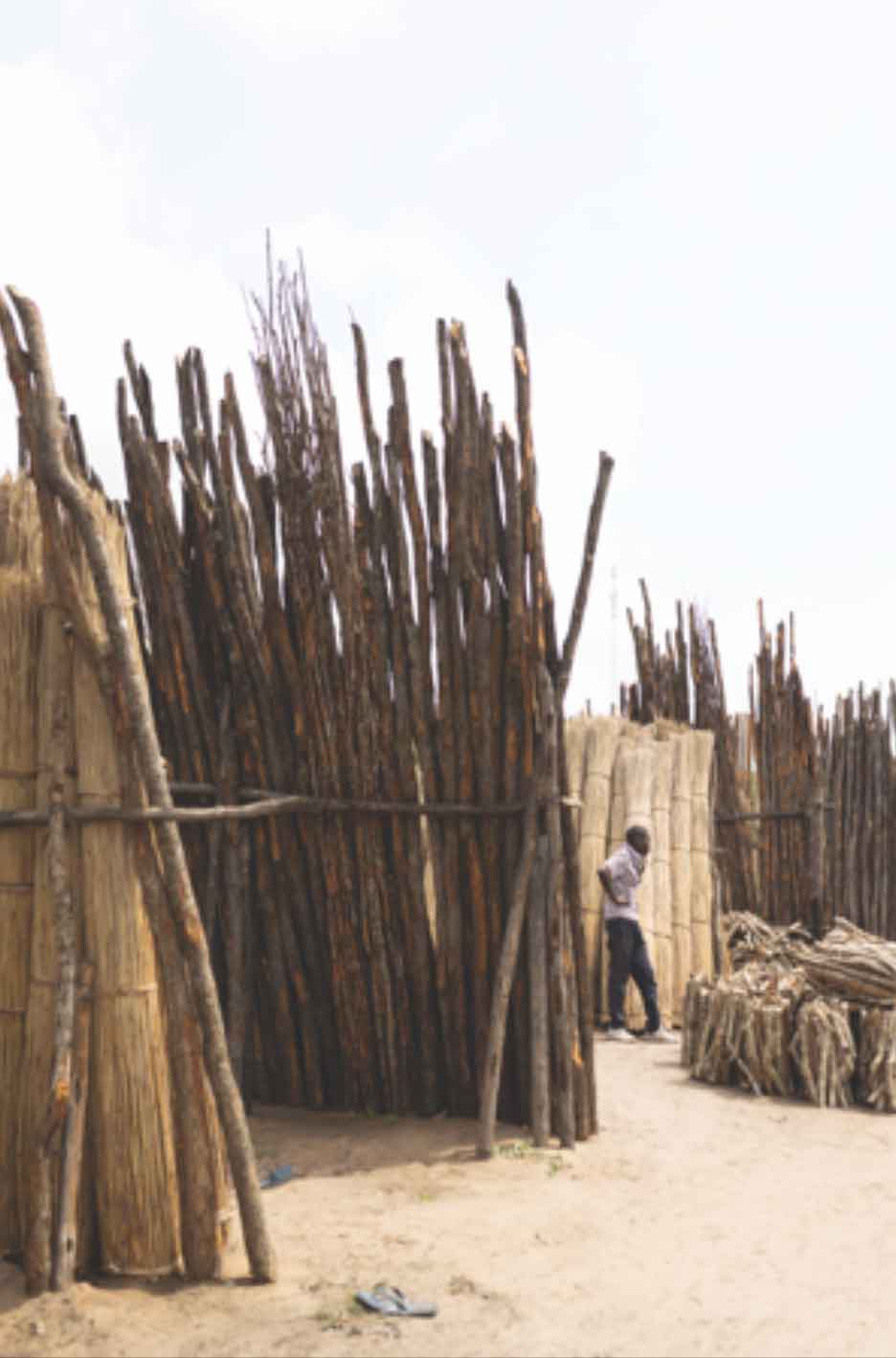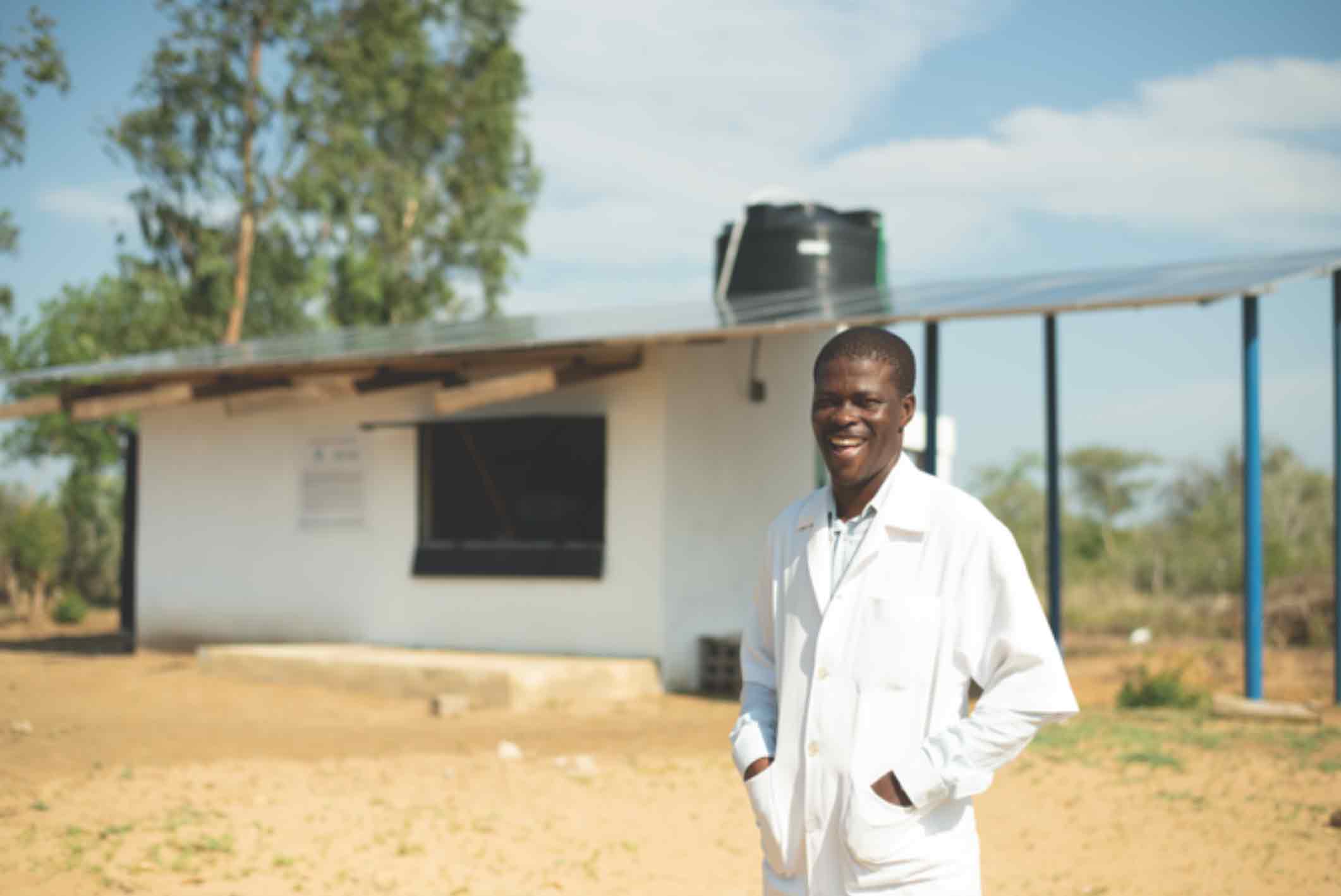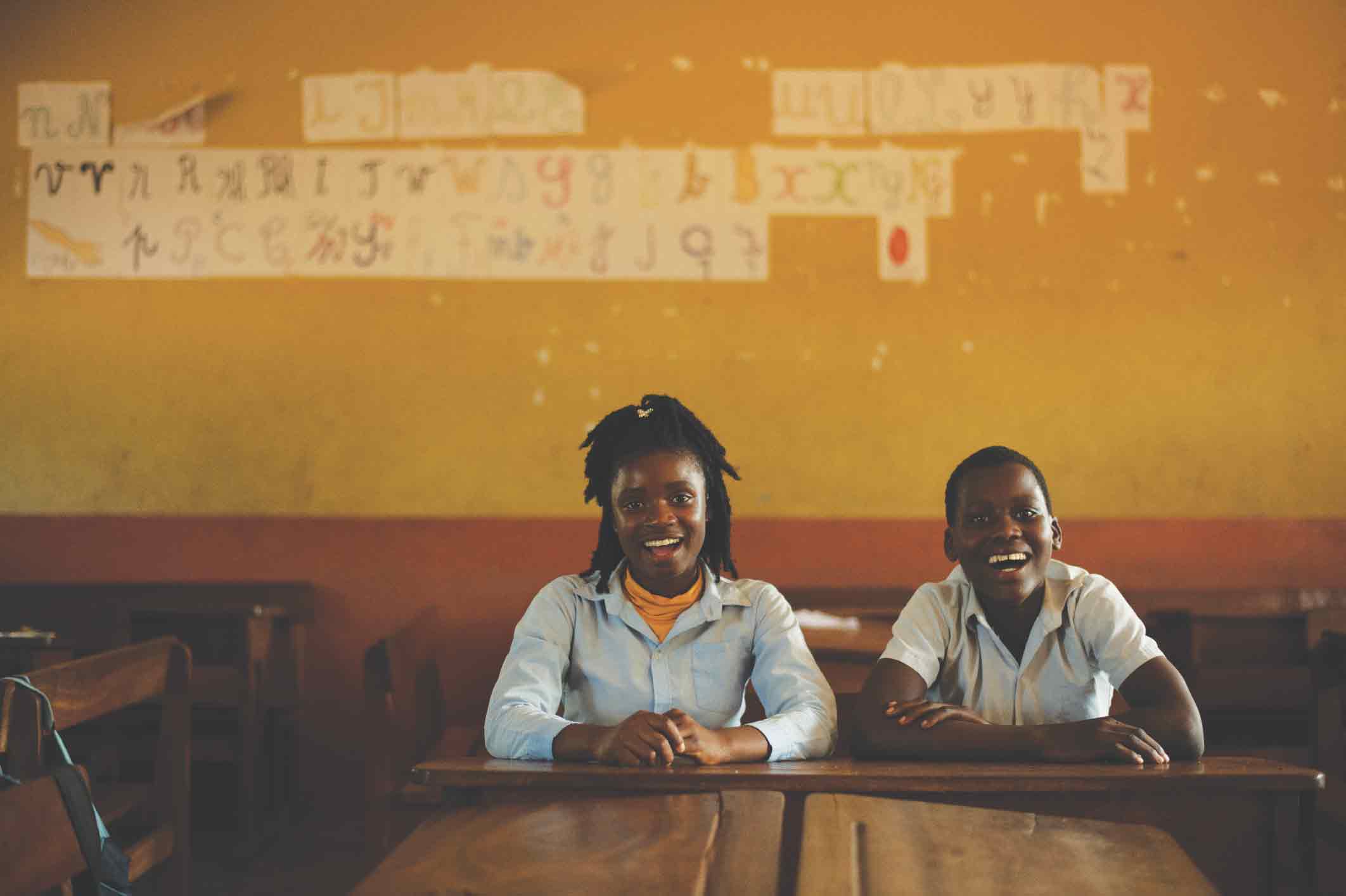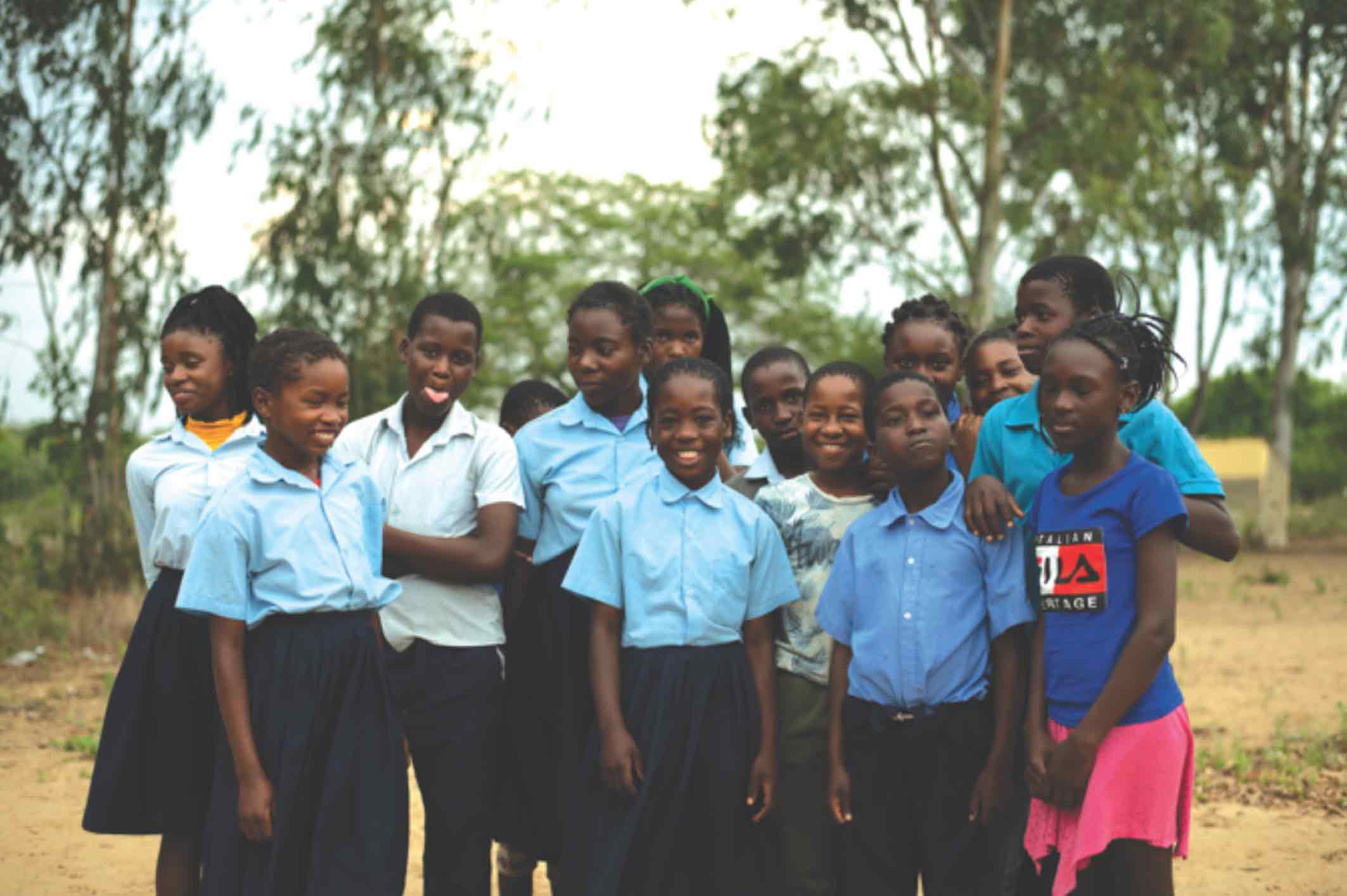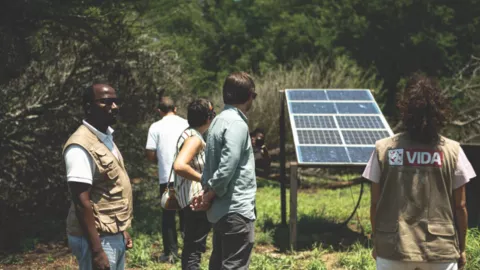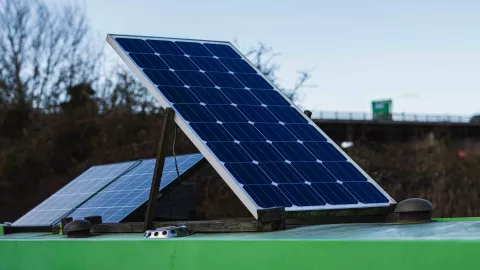Find out how the A2E Fund impacts their lives.
Rita's new light
A simple solar panel on the zinc rooftop of their cinder block home, in a small village on the outskirts of Maputo, was enough to change the everyday lives of Rita Mujovo and her family. Even when the sun goes down early, she no longer needs candles to light up their home. Now that there are light bulbs hanging from the ceiling, she knows she can cook whenever she wants and entertain guests in the evening. Even her oldest daughter, the only one of her three children who is already going to school, can now study after it gets dark — as her younger siblings play safely in and around the house. “It has made all the difference,” says Rita, with a smile dancing across her face.
The same system is also used to power a small radio and charge her phone, the only means of communication in the house. It’s how she stays in touch with her husband, Félix, whenever he is away in South Africa, working in the mines.
Jacinta's "all hours" store
“Now there’s power at all hours!” she says with a vibrant laugh. Jacinta Nhagumbo works in a small grocery store, Milena’s Bar, in a village near Matola. There, she sells eggs, fruit, meat, drinks, and other staples. The power grid has already made it to the area, as apparent from the utility poles in the street, but blackouts are still frequent. Since they installed the solar power system in the store, though, electricity has never failed — and so they are able to have fridges to keep their products fresh for longer, as well as being open until later. Longer hours also means more customers and higher revenue at the end of the day, so Jacinta couldn’t be happier. “Before, power would come and go. Not anymore. Now, we have electricity all the time — and plenty of customers!” she says.
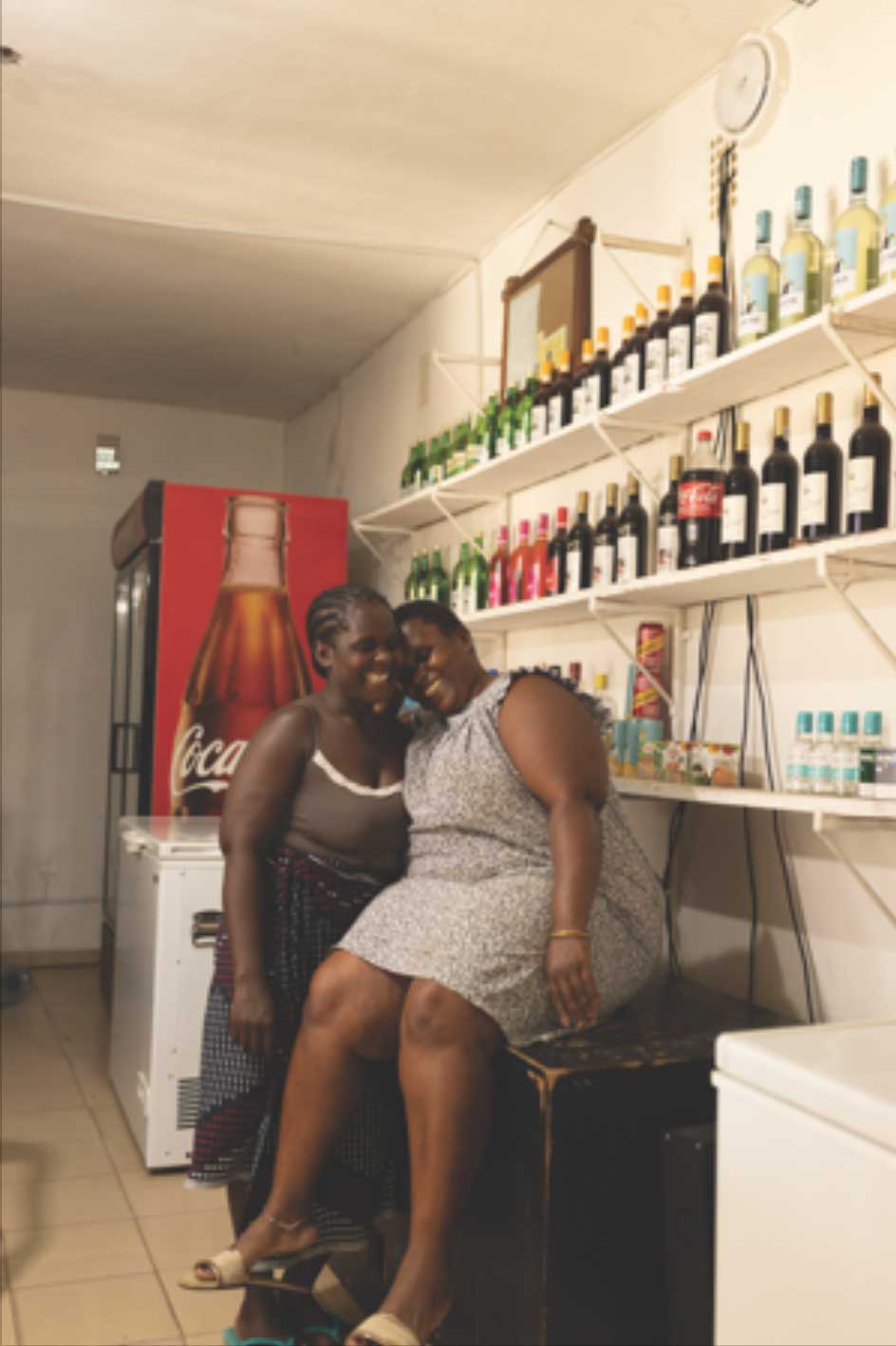
Moisés, the entrepreneur
Having reliable power and permanent lighting has also made all the difference for Moisés and his business, a small hardware and construction supplies store and brick factory near Matola. “Before, I had to close very early, almost mid-afternoon, because I didn’t have any light. Now, I can stay open longer hours and the customers can come later,” he says. “It’s very good for me and for the business.” The young entrepreneur — as he often describes himself — also points out that there has been a decrease in crime since he started having lighting around his store, which is located along a dirt road that many people use throughout the day. “It used to happen a lot, but not anymore. We are safer now,” he acknowledges.

The Djabula artisans
To get to the site of the project conducted by Portuguese NGO VIDA in Djabula, you have to leave the capital city and travel for about two hours on a winding dirt road strewn with potholes, detours, and obstacles — and under a blazing sun for most of the way. Yet that very sun is also at the origin of a positive change in the lives of the people in this remote community south of Maputo. The solar panels installed there are now powering a vocational school, an agricultural nursery, a beekeeping facility, and even a workshop for artisans. All with the participation of the local population.
The focus on the production of handcrafted products has even led to the creation of their own brand: Djabula. In addition to being featured at handcraft fairs throughout the country, the brand’s products are also available for sale at Nyala, a major store in downtown Maputo. This venture is a significant source of income for the group of artisans — 15 women and 1 man — who work in basketry, paper craft, and batik. It is even starting to attract a younger generation to the workshop. Sara Sangareau, the project manager at VIDA in Djabula, is proud of these small achievements — including the nursery, where they are testing different cultivars in the hope that they will become thriving crops in the area.
SolarWorks! goes to the market
The SolarWorks! sales booth is like an island in the middle of a street market in Matola. And it’s not just because of the garish red of the marquee and uniforms, the promotional jingle that one of the employees sings into the microphone, or even the impromptu dancing that prospective customers break into right there, to the tune of the music blasting from the sound system. It’s also because the booth, showcasing solar panels and clean energy solutions, is surrounded by giant piles of firewood and charcoal for sale. Those are still the country’s most prevalent sources of energy. It’s a huge contrast, but the curiosity of passers-by is even greater. The company has been investing in this kind of street campaign, appearing in markets and other crowded areas, precisely for the opportunity to present its sustainability solutions to potential customers. SolarWorks! provides solar systems tailored to homes and small businesses. Such systems are often the only option available for rural communities to access electricity and use it for everyday tasks as simple as turning on a light bulb, charging a mobile phone, watching television, or running a refrigerator.
The company — of which EDP has been a shareholder since 2018 — operates in Mozambique and Malawi, delivering a range of solar products that allow many people to have access to electricity for the first time in their lives. Additionally, it continues to strive for innovation, developing other business-oriented kits for small entrepreneurs, including appliances like sewing machines, hair clippers, water pumps, freezers, and more.
Elias, one of the pioneers
Public grid electricity is yet to arrive in Bobole, on the outskirts of Maputo, but Elias Novunga did not wait to have power at home. A career soldier who now spends most of his time taking care of his small farm, where he grows produce and raises cattle, Elias was one of the first SolarWorks! customers in Mozambique. The reason, as he explains, was simply that he had to take care of his family and make sure that they had lighting both at home and around it. A simple solar panel was e nough at first, but his family is growing. So, he decided to go back to SolarWorks! and bolster his rooftop solar system. This way, he can have more light and enough power for other appliances. “It’s good electricity, and cheaper,” he says, explaining why he didn’t hesitate to go shopping again.
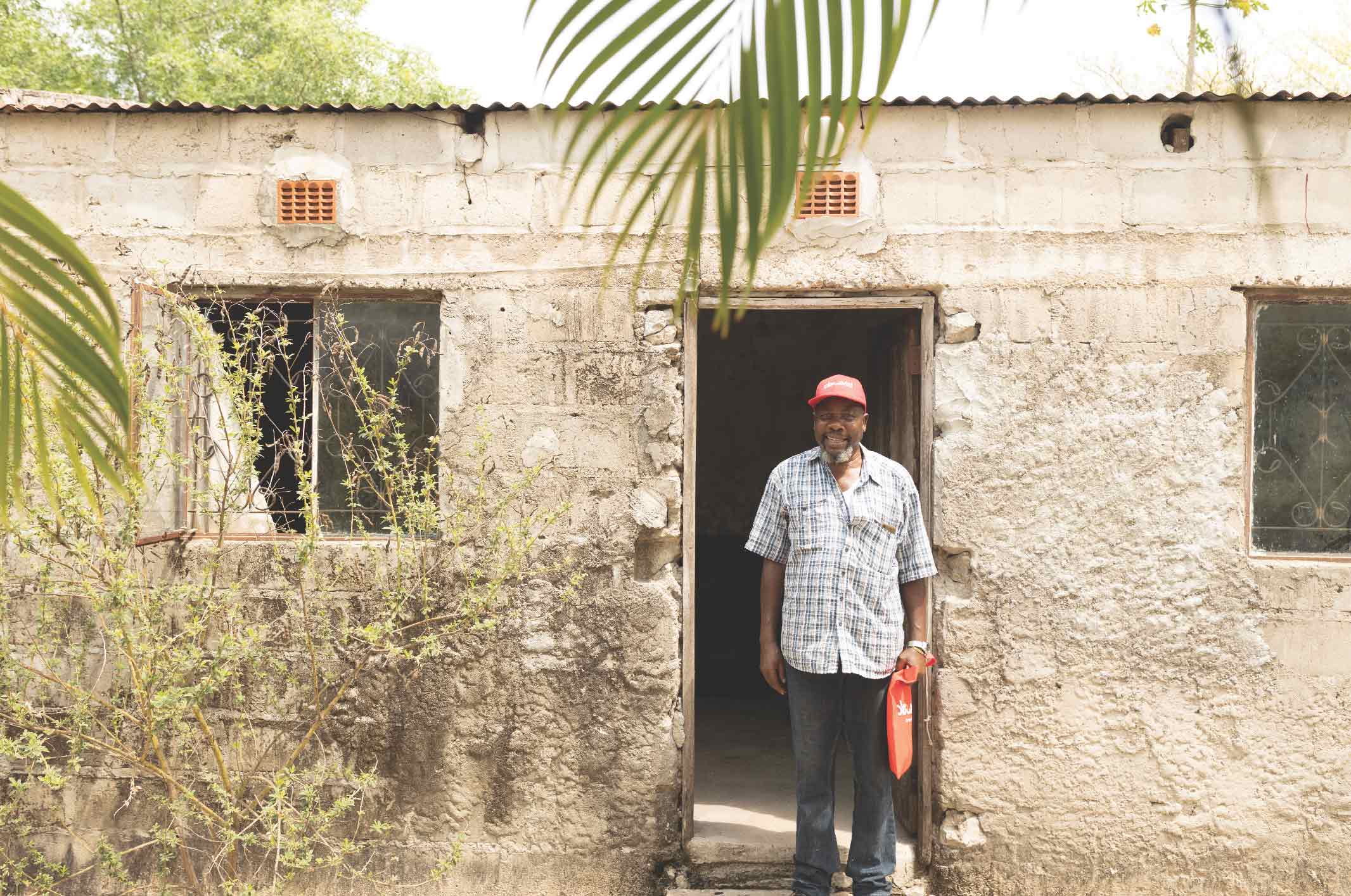
The strength of the mwarusis
Shielded from the merciless late morning sun by the shade of some leafier trees, a group of girls arranged themselves into small circles, sitting on the ground. On that day, they played a kind of “game of goose,” adapted to their own reality, teaching them what to do if they want to lead a healthy life and safeguard their education and independence — and what they’d lose if they chose a different path. This is one of the game-based teaching methods used by the mentors trained by Girl MOVE. Their goal is to ensure that the mwarusis — a Makua term for girls in that transitional phase between the ages of 12 and 15 — do not drop out of school because of early marriages or pregnancies resulting from family or community pressure. This initiative is all the more pertinent in a country where only 10% of girls complete their secondary education and 40% have their first child before the age of 18.
What is clear is that school dropout rates among girls have declined since the launch of Girl MOVE, in 2019. The organization recruited 840 mwarusis for a program targeting primary education students from vulnerable backgrounds, and the early marriage and pregnancy rate among that group dropped to less than 1%. Their work with the mwarusis is just one of the many activities and projects developed by Girl MOVE. The academy is part of Lúrio University, located in Nampula, in northern Mozambique. It has been training and guiding young women to continue their studies, care for their own well-being, and pursue professional opportunities — and, later on, to inspire and guide other young women like themselves.
The academy building itself is an example of sustainability, explains Joana Leite, the program director at Girl MOVE. Powered entirely by solar energy and batteries, the building is also notable for being made using exclusively local materials, including the burnt earth bricks that lend it a very special hue. “That’s where our heart is,” says Leite, and where they invest in the ripple effect of girls’ education and leadership training.
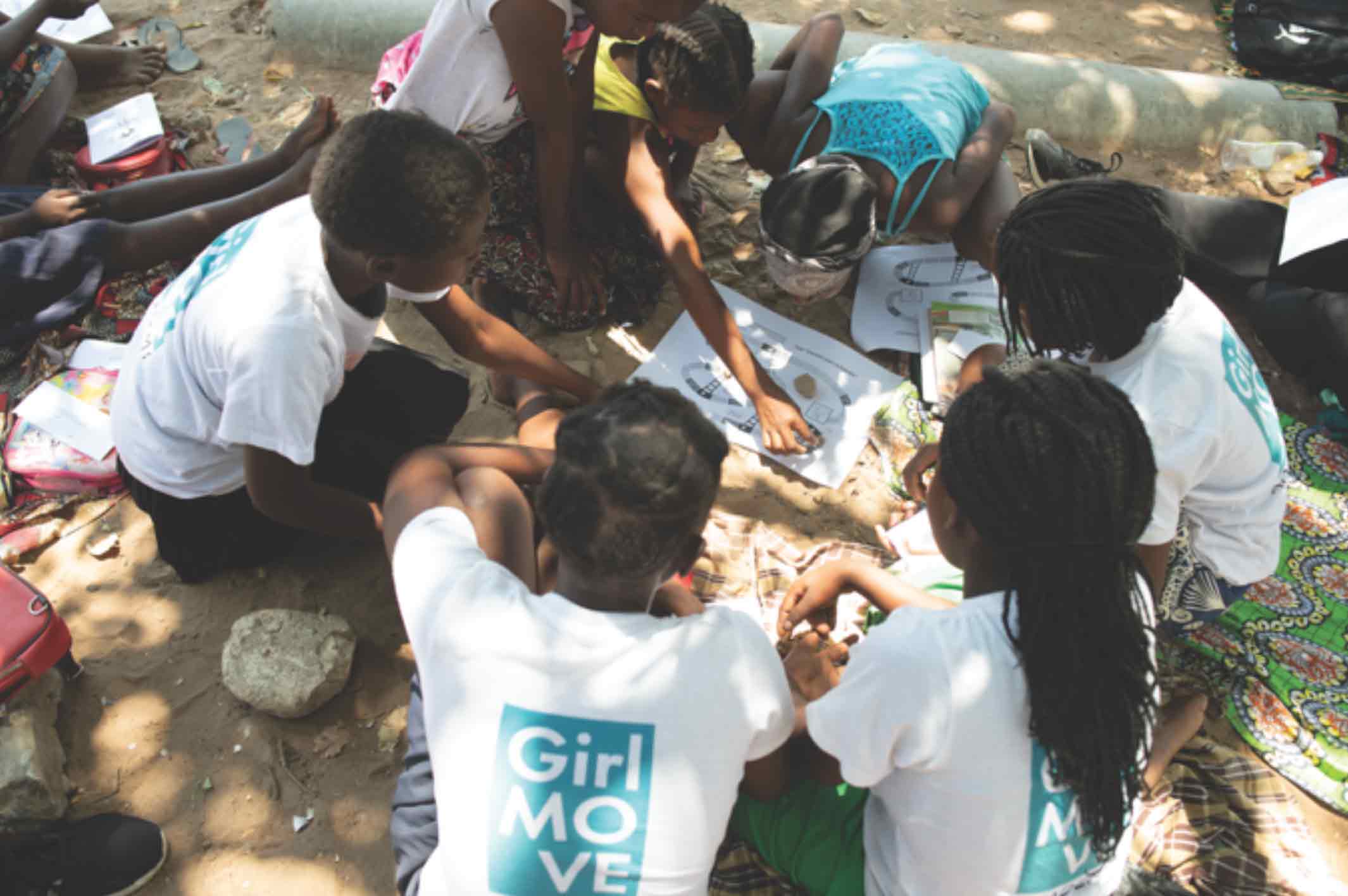
Clean water, new life
The first time that clean water came out of the desalination system installed by Viva con Agua de Sankt Pauli in Matutuine, two hours outside of Maputo, it was cause for celebration. For the 160 or so children who attend elementary school there, it meant having access to clean drinking water. The entire community, which is home to about 650 families, no longer needs to find water from unsafe sources, like rivers and ponds. Alúzio Mbjaia, a teacher and school principal in Hindane, is now helping manage and maintain this project. As he shows us the solar panels on the roof of the facility where the water is filtered after being pumped from deep wells, he can’t stop smiling.
EDP’s support for this initiative “was instrumental,” he says, adding that with access to potable water, much can change in the life of this community. That is still a common problem in Mozambique: 44% of the people have no access to basic water supply, and communities in rural areas are the most affected. And since it is traditionally women or children who are responsible for providing water for their families, they often have to travel long distances to do so. The result is that most of them end up missing out on the opportunity to study or engage in other activities.
Now, thanks to German charity Viva con Agua, in partnership with Grino Water Solutions, there is a battery-free, solar-powered desalination system that provides free water to the children. For the rest of the community, it is available at a token price of MZN 10 (about €0.15) per 25-liter drum.
